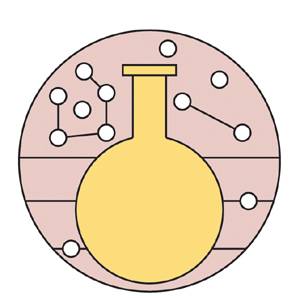
There is a separate children’s questionnaire, to be filled out by a parent. I did this on behalf of my son; his score was 7, putting him at the low end of the lowest, 0-24, range. Though this is worryingly low, it came as no shock because my son has Asperger Syndrome, one of the Autistic Spectrum Disorders (ASD), among whose main symptoms is an inability to read other people’s thoughts and feelings.
In short, autistic people have great difficulties with empathy, a point that Baron-Cohen, who is among the world’s experts on this much discussed but little understood condition, has argued strongly in his two previous books, Mindblindness: An Essay on Autism and Theory of Mind (1995) and Autism and Asperger Syndrome: The Facts (2008). With his new book Baron-Cohen, a psychologist and neuroscientist and Director of the Autism Research Centre in Cambridge, moves beyond a focus on autism on to a terrain usually considered the preserve of moral philosophers, sociologists, bishops and Channel 5 documentaries: the debate around the nature of evil itself. If the title of the British edition of the book is diffident – Zero Degrees of Empathy could, perhaps, be a misery memoir based in the Arctic – the title chosen by his US publishers betrays no such reticence, presenting itself as nothing less than The Science of Evil.
So we have an expert on autism proposing a new theory of cruelty that attempts to “rebrand” evil as a lack of empathy. Those of us with autistic people in the family know that they are often very far from little angels, but is the good doctor really saying that there is a direct link between autism and evil? “I’m certainly not saying that,” he insisted, when I accosted him at London’s Royal Institution, as he prepared for a lecture based on his book. “I make it very clear in the book that low empathy can result in people doing cruel things but it doesn’t always, and people with autism are one very good example of where low empathy doesn’t result in high rates of criminality.”
So what is the link, how does work on autism lead to an interest in evil? “For a long time I have had this nagging question – what is the relationship between the empathy difficulties of autistic people and those other groups in the population who have these difficulties, particularly what we call the personality disorders, like psychopaths, narcissists and those with so-called borderline personality disorder. Arguably these people also have problems with empathy, but it’s a puzzle. People with autism have empathy difficulties but they do not tend to go on and hurt other people, if anything they tend to withdraw from people, they find people confusing. While the other groups can and often do cause harm. So the book makes empathy the centrepiece and asks: ‘what is this special substance?’”
Baron-Cohen breaks his notion of empathy into two stages – “the ability to identify what someone else is thinking or feeling” and the ability “to respond appropriately”. While the majority of the population have no problem with either – one of the achievements of the book is to remind us just how amazing it is that the vast majority of humans have innate unconscious empathy – Baron-Cohen has found that there are distinct groups who may suffer with one or the other of these operations. For example, autistic people struggle most with recognition – they can fail to recognise something as taken-for-granted as the relationship between a frown and irritation, or a smile and happiness – while psychopaths might have no problem recognising that other people have feelings, but they have a completely inappropriate response to it, perhaps indifference, or even an enjoyment of others’ suffering.
To emphasise this distinction Baron-Cohen employs the terms Zero-Positive and Zero-Negative. The Zero-Positives are those on the autistic spectrum who lack empathy for physiological reasons but who do not set out to cause harm. “If anything,” he says, “they’re more moral than the general population.” The point about Zero-Positives is that they can overcome their empathy deficit through learning to recognise facial expressions and other subtleties of human interaction, and they are also endowed with what Baron-Cohen calls the “systematising” brain. While they may seem stand-offish and confused in social interaction, Asperger’s people have enormous capacities for finding pattern and mastering detail.
In contrast the Zero-Negatives – psychopaths, narcissists and those with conditions like Borderline Personality Disorder – have no such compensatory capabilities. Their lack of empathy is dangerous because, combined with other elements of their disorders, such as extreme selfishness, sadism or inability to regulate their own feelings, they can cause extreme harm to others either carelessly, because they don’t care about the impact of their behaviour, or deliberately. It is these groups who perpetrate acts we might call “evil”.
Baron-Cohen wants to reframe the notion of evil not as some kind of innate permanent state, but as a medical condition that in principle is susceptible to treatment. In short his aim is to take the notion of evil away from the preachers and sociologists and make it a scientific problem: “As a psychologist and neuroscientist I want to know what are the causes of human behaviour. It doesn’t just come out of the blue, and it doesn’t come from spirits or demons; it’s the result of processes within the body and ultimately within the brain and we need a good account of these things.”
Throughout the book the science is patiently and clearly explained by Baron-Cohen, who is a reliable guide through the complex data. The hard science is interspersed with case studies of people suffering from the personality disorders he discusses. There are chilling reminders of the bizarre package that makes up the psychopathic personality, for example, which combines a failure to care about others’ feelings with superficial charm, a lack of guilt and absolute egocentricity. It is intriguing to think about evil in the context of science, suspending one’s moral opprobrium and thinking about what it might be like to have a brain like that. But if we follow the logic too far aren’t we in danger of providing an excuse for the perpetrators of vile crimes?
“I think we do have to encourage people, including patients, to take responsibility for their actions and help them develop self-control,” he says. “But equally I think it is important to consider why somebody does what they do. When we see someone in the wheelchair, we don’t say, ‘You’re responsible for being in the wheelchair.’ We say, ‘Let’s make some reasonable adjustments to our environment so you’ve got good mobility.’ We can do the same for people with psychiatric diagnoses.”
At the end of the book Baron-Cohen lists ten ways he wants to contribute to the debate about evil. They fall roughly into three categories – first, a proper understanding of what empathy is and why it matters; second, the suggestion that lack of empathy can be located in the brain and the genes, and possibly therefore might be treated; and, third, deepening our understanding of autism. Judged by his own criteria his book is a partial success. Baron-Cohen is convincing that empathy and especially the lack of empathy is a proper scientific subject and that neuroscience and psychology can work together to help us understand some of the material aspects of fellow feeling. One of his most arresting arguments is that the empathy difficulties of autistic people are part of a larger strategy of the autistic brain to “step out of time” so they can give due attention to what really fascinates: “the eternal patterns of nature”.
But ultimately, in relation to the putative main theme of evil, the book can’t quite measure up to its subject. The decision not to engage with the copious literature on evil, whether it be theological, artistic, social-scientific or legal, leaves his argument half-baked, and insufficient for dealing with the enormity of man’s inhumanity to man. He starts the book with the Holocaust, and with the question of how perfectly civilised people could have been responsible for such manifestly evil acts. It may well be that Hitler, Himmler and the other architects of the final solution had deficiencies in their empathy circuits, but surely the real chilling puzzle of the Holocaust was that so many people who were not psychopaths or, on the face of it, evil could have been involved in the perpetration of such crimes. The same goes for Rwanda. Merely saying that at the crucial moment they lacked empathy doesn’t seem to get us very far. Science alone, without some sense of the way politics and ideology, blood-lust and historical resentment, herd instinct and cowardice, can come together to enable large groups to visit atrocity on other people, cannot in the end capture what is unique about mass human cruelty, a uniqueness indicated by our coinage of a particular word for it, a word that, as AC Grayling argues, “expresses the furthest condemnatory reaches of our calibration of moral quality”. That word, of course, is evil.
Zero Degrees of Empathy: A New Theory of Human Cruelty by Simon Baron-Cohen is published by Allen Lane

